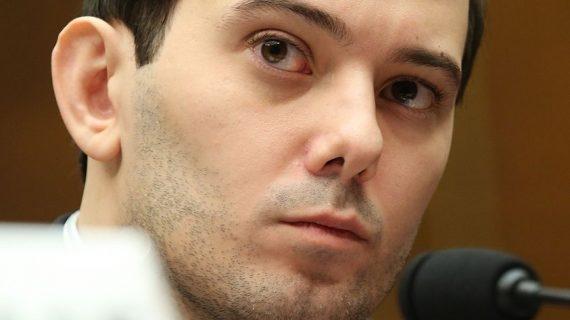Shkreli claims Druglike isn’t a drug company

‘Pharma bro’ Martin Shkreli has already found himself back in the spotlight of the law, less than a year after being released from prison for securities fraud.
The Federal Trade Commission (FTC) asked a federal judge in the Southern District of New York last month to hold Shkreli in civil contempt of court for breaching a lifetime restraining order preventing him from working in the pharma industry, after he set up a company called Druglike.
Now, in a statement to the court, Shkreli has claimed that Druglike is not engaged in drug discovery, so doesn’t breach the terms of his restraining order. When the launch of the company was announced last July, Shkreli said the new venture was a decentralised computing network that will be used to power early-stage drug discovery projects.
At the same time, the launch information included a disclaimer that Druglike is a “blockchain/Web3 software company and not a pharmaceutical company” – a position which will now be tested in the court.
He is also reported to have said that his ultimate objective was to get back in the pharma game and that he would be challenging the ban imposed by the courts.
Shkreli also told the court he should not be held in contempt for failing to provide federal and state regulators with information on his new venture, insisting he had responded to enquiries “as extensively as possible and in good faith,” according to a Reuters report. He also failed to agree to attend an interview with the FTC.
According to court documents, Shkreli said he never had either an ownership or executive role at Druglike, adding that he believed the company had already been dissolved. He added he is continuing to play a role in a new company – called DL Software – which he also co-founded, and is creating software for chemists and physicists, which also should not come under the pharma industry injunction.
Shkreli had been dubbed “the most hated man in America” for his arrogant and defiant posturing whilst acting as chief executive of Turing Pharma, which hiked the price of off-patent HIV drug Daraprim (pyrimethamine) from $13.50 to $750 per tablet – leaving some patients forced to pay up to $16,000 in out-of-pocket co-pays.
That was not the action that led to Shkreli’s sentencing, however. He was found guilty in 2017 of securities fraud schemes involving two hedge funds that he ran, sending fake account statements in order to conceal huge losses, and also convicted of manipulating the price and trading volume of stock in Retrophin, another pharma company he founded in 2011.
In January, Shkreli was ordered to repay $64.6 million after a judge ruled he and others at Turing – now renamed Vyera Pharma – had broken competition laws to keep other suppliers of pyrimethamine off the market and is still on the hook for around $24 million of that total.
US District Judge Denise Cote, who will decide the FTC contempt motion, also imposed the ban and a $64.6 million penalty on Shkreli, which he says he has been unable to pay.












